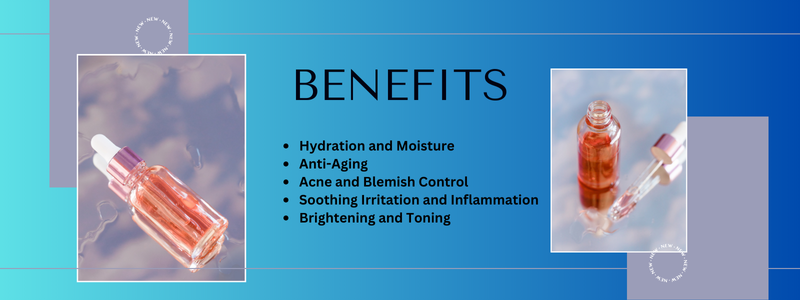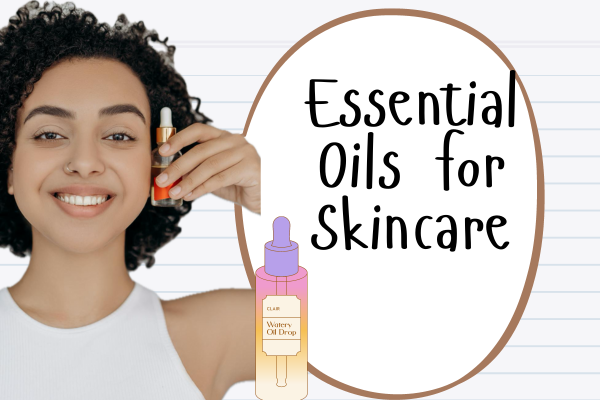In the world of natural beauty, essential oils have gained immense popularity for their ability to nourish and enhance the skin. Derived from plants, these potent oils carry a wide range of benefits, from hydration and healing to anti-aging and acne control. Whether you’re looking to achieve glowing skin or combat common skin issues, essential oils for skincare can be the perfect addition to your beauty routine.
In this comprehensive guide, we’ll explore the best essential oils for skincare, their benefits, and how to use them safely for optimal results.
What Are Essential Oils?
Essential oils are highly concentrated plant extracts obtained through distillation or cold pressing. They contain the natural scent and properties of the plant, offering both therapeutic and cosmetic benefits. The use of essential oils for skincare dates back centuries, with various cultures relying on these oils to treat skin conditions, promote healing, and enhance beauty.
These oils are rich in antioxidants, vitamins, and anti-inflammatory compounds, making them a valuable ingredient in both DIY and commercial skincare products. However, their potency also requires careful application, as undiluted essential oils can cause irritation or allergic reactions.
Benefits of Essential Oils for Skincare

Essential oils can target a wide range of skincare concerns due to their diverse properties. Here are some of the key benefits:
1.Hydration and Moisture
Many essential oils, such as rosehip and jojoba oil, are excellent for retaining moisture in the skin. These oils can penetrate the skin’s layers, providing deep hydration without clogging pores. They’re particularly beneficial for dry, flaky skin or those suffering from eczema.
2. Anti-Aging
Aging is inevitable, but certain essential oils can help slow down the process by reducing the appearance of fine lines, wrinkles, and age spots. Oils such as frankincense and rosehip are rich in antioxidants, which neutralize free radicals that damage the skin and accelerate aging.
3. Acne and Blemish Control
Acne can be a persistent and frustrating issue, but essential oils like tea tree oil and lavender oil offer powerful antibacterial and anti-inflammatory effects that help reduce breakouts. Tea tree oil, in particular, is famous for its ability to fight acne-causing bacteria without drying out the skin.
4. Soothing Irritation and Inflammation
Essential oils such as chamomile and calendula oil are known for their calming and anti-inflammatory properties. They can help soothe sensitive or irritated skin, making them ideal for conditions like rosacea, dermatitis, or sunburn.
5. Brightening and Toning
Oils like lemon and geranium have brightening properties, helping to even out skin tone and reduce the appearance of dark spots or hyperpigmentation. These oils are excellent for those seeking a more radiant complexion.
Best Essential Oils for Skincare
Choosing the right essential oil for your skin type and concern is essential. Here’s a list of some of the best essential oils for skincare and their specific benefits:
1.Lavender Oil
Lavender oil is a versatile essential oil known for its calming properties. It soothes irritated skin, reduces redness, and helps with acne. It also promotes healing, making it a great choice for minor cuts or burns. Additionally, lavender oil can reduce stress, which is beneficial as stress often worsens skin conditions like acne or eczema.
2. Tea Tree Oil
Tea tree oil is one of the most popular essential oils for fighting acne. Its antibacterial and antimicrobial properties make it effective in reducing acne-causing bacteria. It also helps to calm inflammation and reduce redness. Be sure to dilute tea tree oil before applying it to avoid irritation, especially for sensitive skin types.
3. Rosehip Oil
Rosehip oil is rich in vitamins A and C, which are essential for skin regeneration and collagen production. It hydrates the skin, reduces the appearance of scars and wrinkles, and improves skin tone. Due to its light texture, it’s suitable for all skin types, including oily and combination skin.
4. Jojoba Oil
Jojoba oil is unique because its structure closely resembles the natural oils (sebum) produced by our skin. This makes it ideal for balancing oil production, whether your skin is dry or oily. Jojoba oil is also lightweight and absorbs quickly, leaving your skin soft and hydrated.
5. Frankincense Oil
Frankincense oil has been used for centuries to promote healthy skin. It’s known for its ability to reduce the appearance of scars, wrinkles, and fine lines. This oil is also anti-inflammatory, making it suitable for sensitive skin or those with conditions like acne or rosacea.
6. Chamomile Oil
Chamomile oil is perfect for sensitive and irritated skin. Its anti-inflammatory and soothing properties help calm redness, inflammation, and skin conditions like eczema. Chamomile oil can also promote faster healing and reduce scarring.
7.Geranium Oil
Geranium oil is excellent for balancing the skin’s natural oils and promoting an even skin tone. It can reduce the appearance of dark spots, tighten pores, and give the skin a radiant glow. It’s also great for reducing acne breakouts and soothing irritated skin.
How to Use Essential Oils in Skincare
When using essential oils in skincare, it’s important to dilute them properly to avoid skin irritation. Here are some tips on how to safely incorporate essential oils into your skincare routine:
1. Dilute with a Carrier Oil
Essential oils are highly concentrated and should never be applied directly to the skin. Always dilute them with a carrier oil, such as jojoba, coconut, or almond oil. A safe ratio is 3-5 drops of essential oil per tablespoon of carrier oil.
2. Patch Test
Before using a new essential oil, it’s wise to perform a patch test. Apply a small amount of the diluted oil to a discreet area of your skin and wait 24 hours to see if any irritation occurs.
3. Add to Your Skincare Products
You can enhance your existing skincare products by adding a few drops of essential oil to your moisturizer, toner, or serum. This allows you to benefit from the oils’ properties without making a drastic change to your routine.
4. Facial Steaming
Adding essential oils to your facial steaming routine can help open pores and allow for deeper absorption of the oils’ beneficial compounds. Simply add a few drops of oil to a bowl of hot water, cover your head with a towel, and steam your face for 5-10 minutes.
5. DIY Masks and Serums
Many people enjoy creating their own skincare products at home using essential oils. You can mix oils with natural ingredients like honey, yogurt, or oatmeal to create hydrating masks, exfoliating scrubs, or serums that suit your skin’s specific needs.
Safety Tips for Using Essential Oils
While essential oils offer incredible benefits, they must be used with caution. Here are a few safety tips to keep in mind:
– Avoid Eye Area: Essential oils should never be applied around the eyes, as they can cause irritation or damage.
– Sun Sensitivity: Some oils, particularly citrus oils like lemon and orange, can make your skin more sensitive to the sun. Always use sunscreen after applying these oils.
– Pregnancy Considerations: If you’re pregnant or breastfeeding, consult with a healthcare professional before using essential oils.
Conclusion
Essential oils for skincare are a natural and effective way to address a variety of skin concerns, from hydration and anti-aging to acne and irritation. By choosing the right oils for your skin type and needs, you can enhance your beauty routine and enjoy healthier, glowing skin.
Whether you’re a skincare enthusiast looking to add something new to your routine or just starting out with natural beauty, essential oils can offer remarkable results. Just remember to use them properly and safely, and you’ll be well on your way to achieving radiant skin naturally.


Comments are closed.